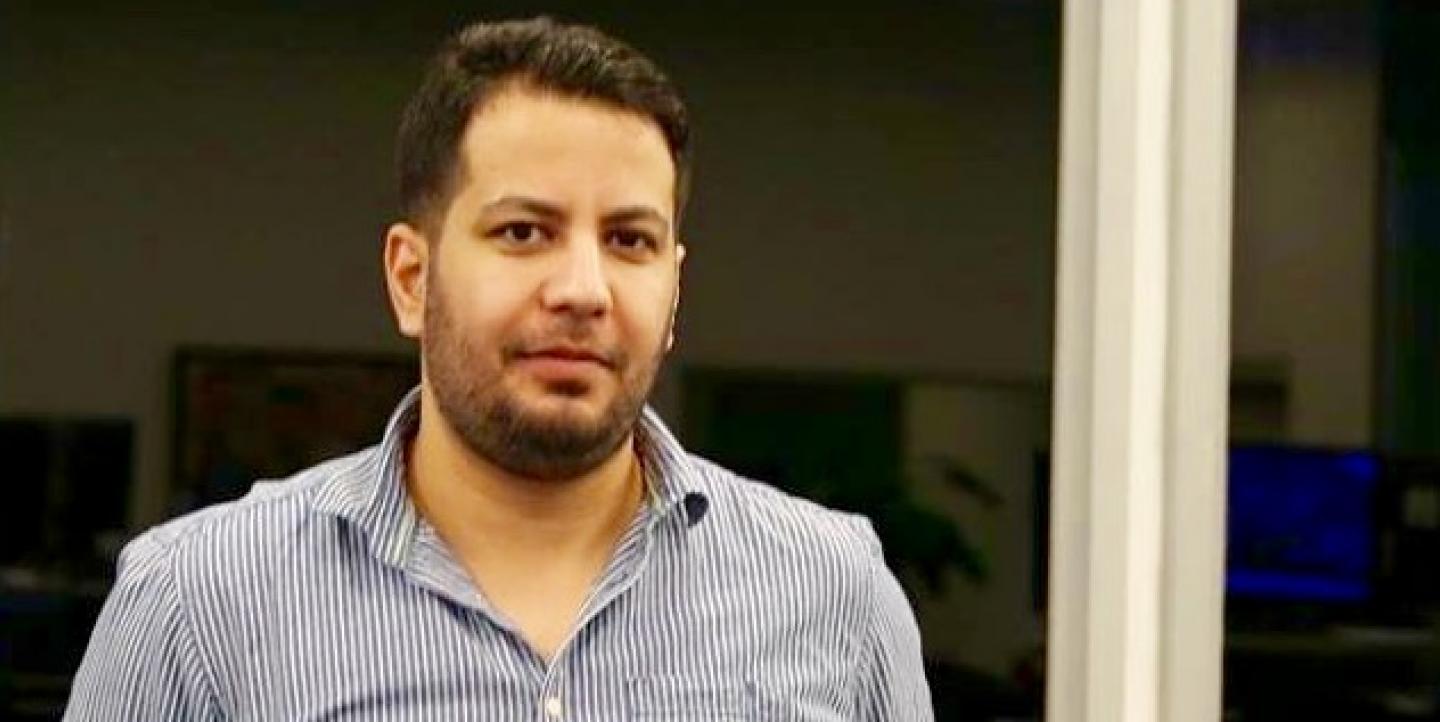Each month, IJNet features an international journalist who exemplifies the profession and has used the site to further his or her career. If you would like to be featured, email a short bio and a paragraph about how you have used IJNet here.
The world of digital media has changed dramatically since Rabia Elkotbi first began blogging on a volunteer basis in 2008. He’s kept up with these changes by taking advantage of as many trainings as possible.
Most recently, Elkotbi attended a data journalism bootcamp led by ICFJ and Code for Africa in October in Casablanca, Morocco — but it was far from his first time taking part in a training program to improve his digital skills.
Elkotbi has taken part in a number of programs, workshops and trainings that he first discovered on IJNet. In 2012, he attended Tunisia’s first data bootcamp, led by Google. The next year, he traveled to Stockholm for The Swedish Institute’s Young Leaders Visitors Program, which offers personal and professional development for achieving positive change and social impact. He’s also attended an online journalism training with DW Akademie in Tangier, Morocco.
“These experiences guided me to explore the grounds of how much it is essential especially nowadays, the utility of the social media in journalism,” he said. “It is one of the main reasons that pushed me to specialize in this field. Nowadays, visiting IJNet has become one of my daily routines. I even have to check it before I check my my Facebook; it keeps me updated about the latest in journalism and media.”
These days, Elkotbi is based in Doha, Qatar, where he works as a social media producer at Al Jazeera Media Network. We spoke with Elkotbi about the recent ICFJ/Code for Africa data bootcamp he attended, his work at Al Jazeera and more:
IJNet: What was your experience at the ICFJ data boot camp like? What kinds of things did you learn?
Elkotbi: It was a very influential journey that helped me learn more about data journalism. Besides having the opportunity to meet new participants from all around Morocco, and capable facilitators and experts.
The bootcamp helped us launch a bridge of communication among journalists, developers and designers. We learned to use mapping and data visualization to present information in a simplified way for the audience.
How did you get started in journalism?
In the digital era, where things change rapidly, I’ve had to keep up with the progress taking place all around me; in 2008 I started as a volunteer blogger, writing about the main issues facing Moroccan society.
This boosted my drive to learn about the evolution of journalism and that’s how I began my professional path in this regard, getting my master’s degree in journalism and translation. After graduation, I worked as online editor for NorthAfricaPost.com, which is an English-language web site focusing on North Africa. One year later, I moved to Qatar to join Al Jazeera Media Network.
What does a typical day for you at Al Jazeera look like?
Social media producers generally coordinate and manage newsgathering and the creation of content for digital formats. For me, a typical day at Al Jazeera fluctuates between managing the channel’s social media platforms (e.g. Facebook and Twitter), producing accurate content for TV and online based on social media, using social media as source of newsgathering and engaging with our audience on social media.
What's the most challenging story or project you've ever worked on?
The most challenging project I worked on was the preparation of my master’s degree thesis. It focused on the impact of social media on public opinion in Morocco. My thesis discussed how social media affects public opinion, and it allowed me to discover the power of social media in making change in society.
What's the top piece of advice you would give to fellow journalists?
Today, as journalists, we are facing enormous changes in media in the digital era. In my opinion, the best advice I could pass on, including to myself, is to keep updating our knowledge and skills. Learning and continuous training are not options — they’re both a must.
Main image courtesy of Rabia Elkotbi.

